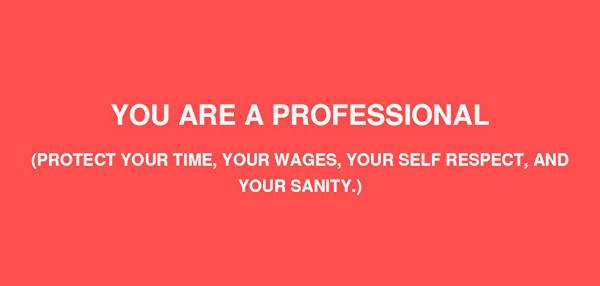Con la insignia de un amplio portafolio de trabajo en diversos géneros narrativos, una estética visual fuera de la norma y trazos híper detallados, Sean Gordon Murphy es uno de los talentos contemporáneos más importantes en la industria del comic. Su ascenso meteórico en la primera década del siglo XXI lo han vuelto uno de los ilustradores más cotizados, y su incursión como guionista nos habla de una voz autoral en evolución constante.
Su obra siempre tiene algo que decir, y es por ello que compartimos estas líneas que dejó en su cuenta de Twitter, en las que nos habla de la creciente necesidad del artista visual por hacer valer a su profesión y sus aportaciones dentro de un medio colaborativo como los comics, un negocio de cuyos dividendos debe siempre formar parte.
– – – – – – – – – –
SEAN GORDON MURPHY’S 6 EASY BUSINESS TIPS for comic artists that will help protect your time, your wages, your self respect, and your sanity. These are things they should have taught you in art school, but probably didn’t.
1. Get a lawyer to read your contract, so you understand the agreement. And don’t tell me you can’t afford it–if you’re willing to do a 6 month gig but not willing to pay a lawyer at least 1 HOUR to look it over, then don’t complain when you get burned.
2. If you’re doing a creator owned book and the publisher/writer hasn’t written you back for 3 days, STOP WORKING. Don’t keep plugging along assuming the project is fine, because there might be trouble. Investigate and ask lots of questions.
3. Make sure you’re CCed on all emails your writer might be having with the publisher. This may include contract negotiations, scheduling, creative discussions, and sales figures. Artist contribute 70% of the hours of most comics–it’s not asking much for them to CC you, even if you don’t need to respond.
4. Manage your expectations and get used to disappointment. Chances are your comic will sell less copies, get less buzz, pay less royalties, and experience more delays than you’re hoping for.
5. Ask for a raise. Or ask for other things in your contracts. Most artist are terrified to rock the boat, which is great for publishers because it saves them money. Try to make each gig a step up, even if your publisher says no.
6. Get a hobby outside of comics and spend less time online. Most of us are insecure introverts who spend an unhealthy amount of time alone. Want to be a happier/more interesting/thicker-skinned person? Then get out of your damn bubble.
7. (BONUS) You are not a celebrity, you are a professional. So if you think your ego is getting out of control, give your meanest/coldest/lowest bullshit friend 110% permission to call you on your bullshit so you can always keep it real.


